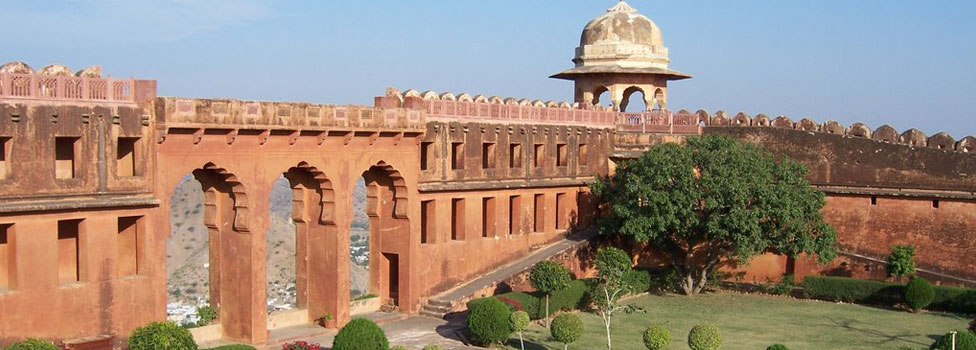Playing sentinel to the old capital of Amber, legendary Jaigarh, the âVictory Fortâ, strategically dominates the Cheel ka Teela. Commonly perceived as one huge compound, the Jaigarh and Amber Forts are directly linked with long secured corridors. Located in the midst of prickly undergrowth, a mere glance at the fort considerably influences the viewer at once.
Exploring the Jaigarh Fort
Jaigarh Fort was made to strengthen the safety of Jaipur and Amber. Due to this fact, one may not find this fort as creative as other ancient forts and fortresses, but it surely has its own considerably attraction. The Fort has many basic constructions of feudal India, which are really appealing to the keen travelers. It has quite a few imperial strongholds, warehouse, well-thought-out gun foundry, numerous great shrines and a high turret. Jaigarh Fort used to function as the very heart of full field weaponry manufacture for the Rajputs.
One of the few surviving cannon foundries is located here. Its most prized possession is the monumental 50 tonne Jai Van, cast in 1726 and said to be the worldâs largest cannon on wheels. Ironically, despite its impressive size, the cannon has never been fired.
Other interesting sights are the Devi Burj, a seven-storeyed tower where a huge oil lamp was lit on the kingâs birthday, two temples and a palace built over 200 years ago.
How to reach Jaigarh Fort
By Air
Jaipurâs Sanganer Airport is just south of the city.
By Rail
Jaipur Station well connected to Delhi by Ajmer Shatabdi and Delhi-Jaipur Express, to Mumbai by the Bombay Central-Jaipur and Aravalli expresses, and to Kolkata by the Howrah-Jaipur Express.
By Road
NH8 links Jaipur to Delhi via Shahpura and Dharuhera, and to Mumbai via Ajmer, Udaipur, Ahmedabad, Baroda, Bharuch, Pardi, Talasari and Manor. RSRTC operates deluxe coaches from Bikaner House in Delhi near Pandara Road. Excellent bus connections are also available from Jaipurâs Sindhi Camp Central Bus Terminal to other destinations in Rajasthan and beyond.
Jaigarh Fort, Jaipur


